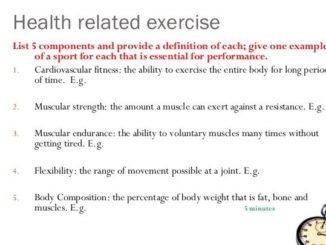
If you're fortunate enough to have employer-provided health insurance, that narrows your options down to the plans that your employer offers. If you don't have coverage through your job, perhaps an organization or association that you belong to will allow you to buy health insurance through them at a group rate.
Another option is to check your local Obamacare health insurance marketplace to see if you qualify for an upfront premium credit, which would get you reduced premium costs. Even if you don't qualify for the credit right away, buying your health insurance through the marketplace means you may qualify for it when you file your tax return for the year.
If you can't, or won't, get health insurance from any of these sources, you'll have to fall back on buying a private plan. It will give you the widest range of options, but likely will be far more expensive.
Decide which type of policy to buy
Health insurance policies come in a variety of basic types, although you may not have access to all of these options through your preferred source. Health Maintenance Organizations (HMOs) are a very common type of health insurance policy. With an HMO, you're required to use healthcare providers within the policy's network, and you have to get a referral from your primary care physician in order to see a specialist.
Preferred Provider Organizations (PPOs) are also quite common. A PPO health insurance policy has a network, but you're not limited to in-network care – although using network providers is cheaper – and you don't need referrals to see specialists.
Exclusive Provider Organizations (EPOs) are a hybrid between HMOs and PPOs. You're required to stick to the plan's network, but don't need referrals for specialists. Finally, Point of Service (POS) plans are a less common option that are essentially the opposite of an EPO. You're not limited to the POS plan's network, but do need a referral to see a specialist.
Of the four common types of plans, an HMO or EPO tends to be cheaper than a PPO or POS with the same level of coverage. However, if network coverage is poor in your area, or you're uncomfortable limiting yourself to network providers, it may be worth paying a little more to get a PPO or POS policy.
More: Buyer beware: Long-term care costs are surging, survey says
More: Obamacare overhaul efforts are dead for now. What does that mean if you're an Obamacare consumer?
More: Trump says he'll negotiate with Democrats on health care plan
High deductible versus low deductible
All things being equal, the higher a plan's deductible is, the lower the monthly premiums will be. A high deductible means that you'll have to pay a lot of healthcare expenses yourself before the insurance policy kicks in, but if you have a few or no medical expenses in a given year, these plans can be a bargain. Very low medical expenses means that you probably won't surpass the deductible, even of a low-deductible plan, so getting a high-deductible plan keeps your insurance costs as low as possible while still protecting you in case something catastrophic happens.
If you decide to go the high-deductible route, getting a Health Savings Account (HSA) -enabled plan, and funding it with at least the equivalent of a year deductible, is your best option. An HSA plan neatly covers the biggest weakness of a high-deductible health insurance policy – namely, that you'd have to shell out a great deal of money on a major medical expense before the insurance would take over. If you have a full-year deductible tucked away in your HSA, you can just use that money to finance your share of the expenses, while simultaneously enjoying the triple tax advantage that an HSA offers.
More: Follow USA TODAY Money and Tech on Facebook
Comparing coverage
There are two major factors that affect how well a particular plan will cover your medical expenses: the plan's network and its coverage policies. Even if you choose a plan with out-of-network options, like a PPO, you're still better off using in-network health providers as much as possible because doing so will reduce your costs. And the rules that a given health insurance policy uses to decide what's covered and what's not – and how much the co-pays will be – can make a huge difference in how helpful a particular policy really is for you.
For example, if there's a rather pricey medication that you take every day, you'll definitely want to get a health insurance policy that lists that medication on its formulary. If you travel a lot, stick to plans that offer good out-of-area treatment options. And if you already have a primary care physician, you'll definitely want to pick a plan that includes your doctor in its network.
Finding the best deal
If you're stuck between two or three different policies and can't decide which one to choose, try this exercise. Multiply the monthly premium by 12 to get your annual cost for a plan, then add in the plan's out-of-pocket maximum. The result is the most you would end up spending on health care if you had one or more major medical expenses during the year. Do this calculation for each plan you're considering, then compare the results. The plan with the lowest total is likely the best deal for you.
Proudly WWW.PONIREVO.COM
Source by Mahadi Hasan Joy



